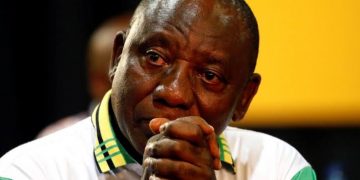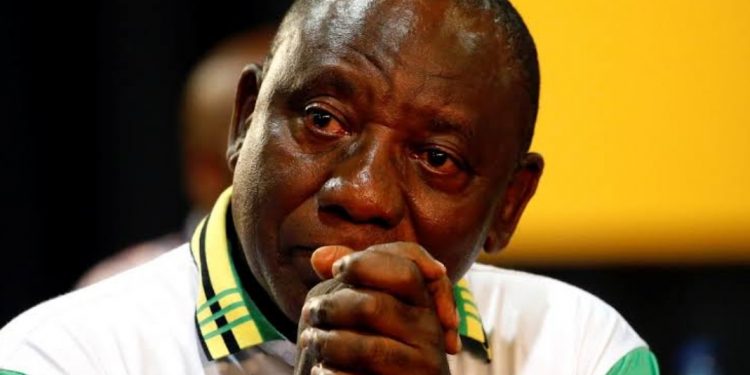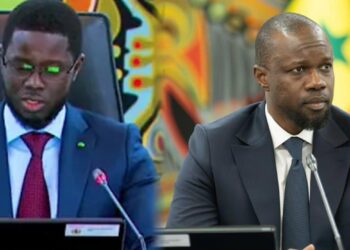By John Ikani
Early results have emerged from South Africa’s most fiercely contested elections since the African National Congress (ANC) assumed power three decades ago.
With around 27% of voting districts reporting, the ANC holds 43%, trailed by the Democratic Alliance (DA) at 25%. The Economic Freedom Fighters (EFF) have approximately 9%, while former President Jacob Zuma’s uMkhonto weSizwe Party (MK Party) stands at about 8%.
Final results are anticipated over the weekend.
These early figures suggest the ANC may lose its parliamentary majority for the first time since Nelson Mandela led the party to a historic victory after apartheid ended in 1994. Voters largely attribute high corruption, crime, and unemployment levels to the ANC.
Projections by the Council for Scientific and Industrial Research (CSIR) and News24 indicate the ANC’s final vote share could drop to around 42%, a sharp decline from the 57% secured in the 2019 elections.
This would necessitate forming a coalition with other parties to achieve a parliamentary majority.
READ ALSO: Kenyan Govt Delivers On Sh10,000 Aid To 25,000 Displaced Households
The DA advocates for liberal economic policies, while the EFF and MK support greater state intervention and nationalization. The choice of coalition partner will significantly impact South Africa’s future policy direction.
President Cyril Ramaphosa’s position remains uncertain. He might face internal pressure to resign if the ANC’s final vote share falls below 45%, according to Prof William Gumede, chairman of the Democracy Works Foundation.
“The ANC could scapegoat him, with some factions pushing for his replacement by Deputy President Paul Mashatile. The EFF and MK might also demand his resignation before any coalition agreement,” Prof Gumede told the BBC.
South Africans vote for members of parliament, who then elect the president, rather than directly voting for the president.
The ANC is experiencing significant losses to MK, especially in KwaZulu-Natal, where Zuma’s party leads with 43% against the ANC’s 21%.
Zuma’s departure from the ANC in December to campaign for MK stunned many. KwaZulu-Natal, his home region and the province with the second-highest voter count, is critical for the ANC’s hopes of retaining a parliamentary majority.
Despite a contempt of court conviction barring Zuma from parliamentary candidacy, he appeared on the ballot as MK leader.
A victory for MK in KwaZulu-Natal would be a “major upset” and could lead to the “potential decimation” of the ANC in the region, said Prof Gumede. The ANC also risks losing its majority in Gauteng, South Africa’s economic hub, where it currently holds 36% compared to the DA’s 29%.
Wednesday’s election saw voters queuing at polling stations late into the night across the nation.
The electoral commission reported that the last polling station closed at 3 AM local time on Thursday. A Johannesburg electoral official likened the queues to those during the historic 1994 election when black South Africans could vote for the first time.
Sifiso Buthelezi, who voted in Johannesburg’s Joubert Park, the largest polling station in the country, told the BBC: “Freedom is great but we need to tackle corruption.”
The sentiment for change is strong, particularly among young voters. “Turn-out among them was high, and they voted against the ANC,” said Prof Gumede.
Ayanda Hlekwane, from South Africa’s “born-free” generation born after 1994, said that despite holding three degrees, he remains unemployed. “I’m working on my PhD proposal to continue studying if I don’t get a job,” he told the BBC in Durban. However, he remains hopeful for change.
Older generations are expected to show more support for the ANC. An 89-year-old voter, Elayne Dykman, expressed hope that young South Africans do not take their right to vote for granted.
A record 70 parties and 11 independents contested the elections, with votes cast for a new parliament and nine provincial legislatures.
The DA has entered into an agreement with 10 parties to form a coalition government if they gain enough votes to unseat the ANC. However, the ANC is likely to remain the largest party, positioning it favorably to lead a coalition.




































